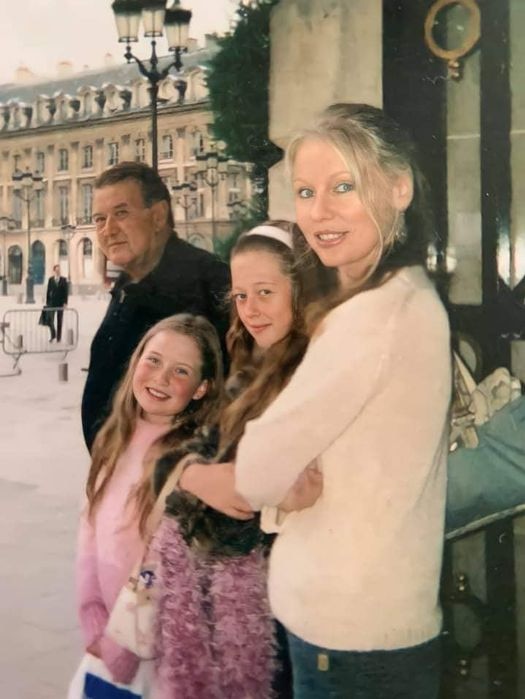Billionaire’s love child launches court bid over trust
The billionaire Pratt family is set to face a fresh court battle launched by Richard Pratt’s daughter.

Lawyers for Richard Pratt’s trust say his love child has no legal claim to it despite Paula Hitchcock declaring otherwise, as the family feud appears set to play out in court.
In the latest development in the case, court documents supplied to The Australian on Friday reveal Paula Hitchcock, the daughter of the deceased billionaire Mr Pratt and his mistress Shari-Lea Hitchcock, argues she is “and all times since her birth” is someone entitled to be part of the trust.
“The plaintiff (Ms Hitchcock) was both a child of Mr Pratt and a sister of ‘specified beneficiaries’ of the trust, namely the (Pratt) siblings,” her statement of claim reads.
Ms Hitchcock says she is the child of the late Mr Pratt, and is a sister of Anthony Pratt — the cardboard box manufacturing and recycling billionaire worth $27.87bn — Heloise Waislitz and Fiona Geminder who are listed as the second, third and fourth defendants on the statement of claim against Pratt Group Holdings.

The late Mr Pratt made his fortune spearheading one of his father’s businesses that manufactured cardboard boxes, Visy.
He had an affair with horse-trainer Shari-lea Hitchcock, and their daughter was born in September 1997. After his death in 2009 Ms Hitchcock’s mother contested Mr Pratt’s will, reportedly leaving the Hitchcocks with a settlement that included shares and property.
In Ms Hitchcock’s updated statement of claim filed in December last year, the 26-year-old says the family attempted to rule her out from joining the trust when she was a child by entering into a “deed of exclusion” at the request of one or more Pratt siblings.
It goes on to say that at the time, Ms Hitchcock was aged three-and-a-half and had no independent representative to protect her interests.
“The purpose of the trustee in entering into the purported deed of exclusion was to seek to exclude the plaintiff from the class of general beneficiaries under the trust deed prior to it being determined through paternity testing that the plaintiff was a child of Mr Pratt,” it stated.
In a further statement, Ms Hitchcock’s case is that excluding her would be to her financial detriment, but to the siblings’ financial advantage.
“(Ms Hitchcock was) suspected of being a child of Richard Pratt but whose paternity had not yet been determined,” it read.
It says the company administering the trust failed to set aside any part of its net income for Ms Hitchcock and breached its duty in doing so.
Ms Hitchcock, who is represented by YPOL Lawyers partner Timothy Price, claims she suffered loss because she was not given an equal share of distributions received by the siblings and is entitled to “equitable compensation”, according to her statement.
The amount of this compensation will be disclosed later, the statement of claim says.

But lawyers for the Pratt trust denied Ms Hitchcock’s claims and have refused to supply her with financial reports spanning decades and documents that detail “distributions” made to the beneficiaries of the trust among others reports.
“(The trust) does not admit the plaintiff (Ms Hitchcock) is a specified beneficiary,” a defence document says.
It goes on to state the trust’s deed stipulates a child does include an “illegitimate child”, but who “in the opinion of the trustee has been or is acknowledged by one of the child’s parents as a member of that parent’s family”.
The defence says the trustee has “formed no opinion” about that.
It says if Ms Hitchcock is found to be defined as a sister to the other Pratt siblings, she was a general beneficiary of the trust but ceased to be so on June 4, 2001 anyway due to the deed of exclusion.
Pratt Group Holdings, as the trustee for the Pratt family trust is listed as the first defendant on Ms Hitchcock’s statement of claim, and is represented by Jonathan Kenny of Kalus Kenny Intelex.
Specified beneficiaries of the trust are the children of Mr Pratt and his wife, Jeanne Pratt.
The Pratt children are represented by Minter Ellison’s Glen Ward.
The case will return to the NSW Supreme Court in December.







